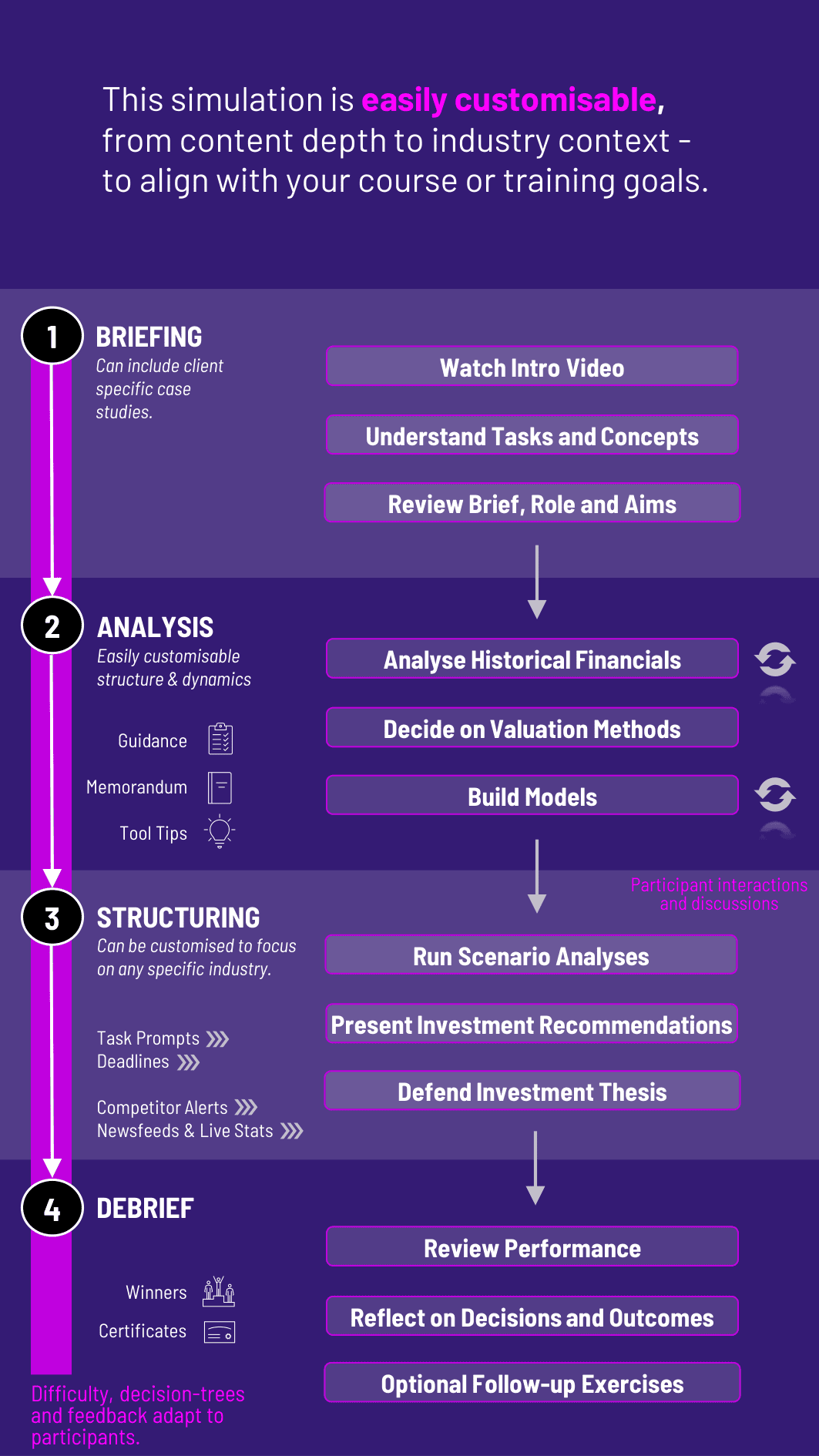
Students step into the role of equity analysts, valuing listed companies using real financial data, forecasting performance, and defending investment theses in our Equity Valuation Simulation.
Valuation Methodologies: DCF, relative valuation (P/E, EV/EBITDA), dividend discount models
Forecasting: Revenue, margins, capex, working capital, and terminal value
Cost of Capital: WACC calculation, beta, risk-free rate, and market premium
Capital Structure Analysis: Debt vs equity impact on valuation
Scenario Analysis and Sensitivity Testing
Investment Thesis Construction: Qualitative and quantitative alignment
Market Comparables and Peer Benchmarking


Analyze historical financials and competitive positioning
Build forward-looking models and justify key assumptions
Choose appropriate valuation methods based on industry and data
Run scenario and sensitivity analyses to stress-test valuations
Present a final valuation range and investment recommendation
Defend their methodology and conclusions in front of peers or instructors
The simulation cultivates the mindset and toolkit of a professional equity analyst. Students learn how to:
Think critically about business assumptions and translate them into forecasts
Select valuation methods suited to specific industries or cases
Apply and interpret DCF and multiples-based models
Balance precision with practicality in financial modelling
Communicate a valuation case clearly and persuasively
Recognize that valuation is both art and science—and justify their judgments
Do students need prior modelling experience? Basic knowledge of Excel and financial statements is recommended. The simulation includes built-in guidance for valuation techniques.
Can the simulation be used for different industries? Yes. Instructors can choose from pre-built company profiles across sectors such as tech, consumer goods, and industrials.
How long does it take? A typical session runs 3 hours for a full valuation cycle, or can be delivered across multiple classes for deeper analysis and presentation.
Individual or team-based? Both. Team play mirrors real-world equity research groups and promotes collaborative analysis.
How is student performance evaluated? Based on accuracy and clarity of valuation models, strength of assumptions, final recommendations, and quality of presentation or written report.
Join this 20-minute webinar, followed by a Q&A session, to immerse yourself in the simulation.
or
Book a 15-minute Zoom demo with one of our experts to explore how the simulation can benefit you.